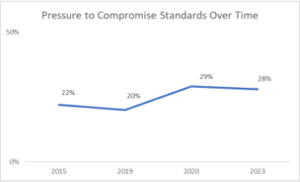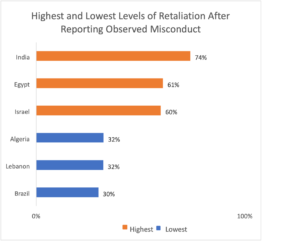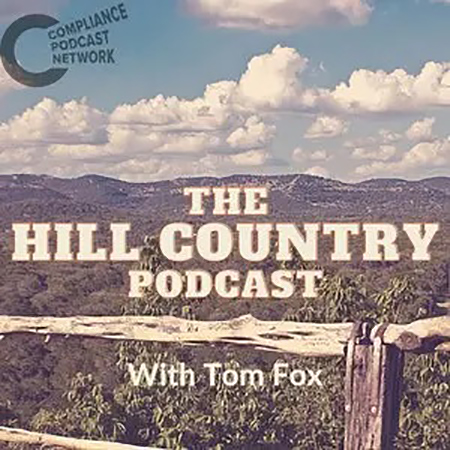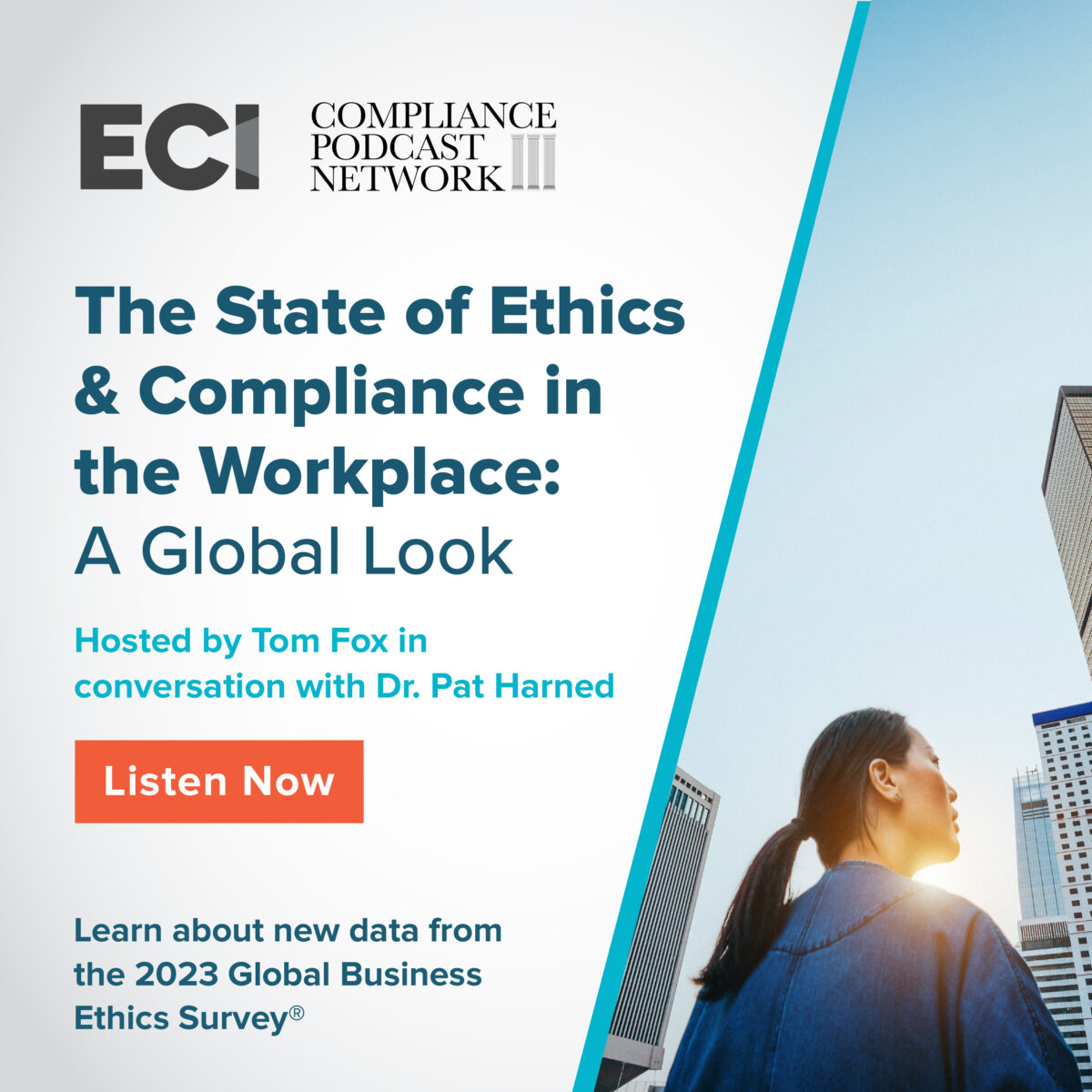The 2023 ECI Global Business Ethics Survey has shed light on the pressing issues of workplace ethics, retaliation, and whistleblower protection. The survey reveals that employees often face pressure to compromise workplace standards or even the law, a problem that the ongoing pandemic has further exacerbated. Additionally, the survey highlights a concerning rate of retaliation against employees who report misconduct, with 46% of observers experiencing some form of retribution. These findings underscore the need for organizations to address these issues and provide better support for their employees.
Key Finding: 1- Employees continue to face exceptionally high levels of pressure to compromise workplace standards or the law.
One of the key findings of the survey is the persistently high levels of pressure faced by employees to compromise workplace standards or the law. This pressure is not merely performance-related but rather involves doing something ethically wrong. The survey indicates that this metric has remained essentially unchanged since the last time it was measured. Even during the pandemic, when remote work and changing work dynamics were prevalent, employees still felt the need to cut corners to meet performance goals or demonstrate their value to the organization.

Key Finding: 4 – Retaliation against employees who report misconduct continues to occur at unacceptable rates.
Retaliation against employees who report misconduct is another critical issue highlighted by the survey. Shockingly, 46% of individuals who observed misconduct reported experiencing some form of retribution. This high rate of retaliation is deeply concerning, but what is even more troubling is that the company never contacted 45% of employees who reported misconduct to inquire about potential retaliation. This lack of support and protection for whistleblowers creates an environment where employees feel isolated and unsupported, discouraging others from coming forward to report misconduct.

It is important to note that not all behavior observed by whistleblowers may be retaliation, as individuals who report tend to be more sensitive and attentive to how people are behaving. However, organizations must educate supervisors and coworkers about recognizing and addressing potential retaliation. By providing training and support, companies can create an environment where employees feel safe and supported when reporting misconduct.
The survey also revealed exciting country ratings regarding perceived retaliation. Countries such as Brazil, Lebanon, Algeria, Colombia, and Argentina were viewed favorably in terms of lower instances of retaliation. On the other hand, countries like Australia, Germany, Israel, Egypt, and India were viewed unfavorably, with higher rates of retaliation. These regional differences highlight the importance of considering cultural and organizational factors when addressing workplace ethics and whistleblower protection.

To address these issues effectively, organizations must prioritize training employees and managers on the importance of whistleblowing and the zero-tolerance policy towards retaliation. By fostering a culture of transparency and support, companies can encourage employees to come forward without fear of retribution. Additionally, providing resources and guidance to employees who have reported misconduct can help them navigate potential retaliation and ensure their well-being.
The 2023 ECI Global Business Ethics Survey serves as a wake-up call for organizations to address workplace ethics, retaliation, and whistleblower protection issues. By prioritizing these areas, companies can create a more ethical and supportive work environment, ultimately benefiting both employees and the organization as a whole. It is crucial to recognize the impact of these issues and take proactive steps to ensure a culture of integrity and accountability within the workplace.
To access the 2023 GBES report and obtain more information about ECI, interested individuals can visit the organization’s website at www.ethics.org. The report provides a summary of the findings, while an interactive website allows users to explore the data in more detail.
Join us in Part 4, where we consider what is an ethical culture.
For more information, check out the ECI podcast series with Pat Harned discussing the GBES here.












